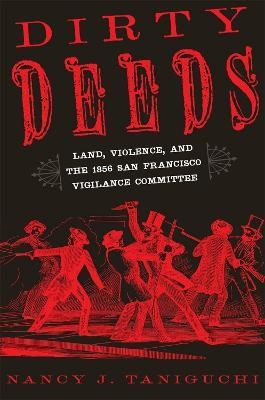Dirty Deeds(English, Paperback, Taniguchi Nancy J.)
Quick Overview
Product Price Comparison
The California gold rush of 1849 created fortunes for San Francisco merchants, whose wealth depended on control of the city's docks. But ownership of waterfront property was hotly contested. In an 1856 dispute over land titles, a county official shot an outspoken newspaperman, prompting a group of merchants to organize the San Francisco Committee of Vigilance. The committee, which met in secret, fed biased stories to the newspapers, depicting itself as a necessary substitute for incompetent law enforcement. But its actual purpose was quite different. In Dirty Deeds, historian Nancy J. Taniguchi draws on the 1856 Committee's minutes-long lost until she unearthed them-to present the first clear picture of its actions and motivations. San Francisco's real estate comprised a patchwork of land grants left from the Spanish and Mexican governments-grants that had been appropriated and sold over and over. Even after the establishment of a federal board in 1851 to settle the complicated California claims, land titles remained confused, and most of the land in the city belonged to no one. The acquisition of key waterfront properties in San Francisco by an ambitious politician motivated the thirty-odd merchants who called themselves "the Executives" of the Vigilance Committee to go directly after these parcels. Despite the organization's assertion of working on behalf of law and order, its tactics-kidnapping, forced deportations, and even murder-went far beyond the bounds of law. For more than a century, scholars have accepted the vigilantes' self-serving claims to honorable motives. Dirty Deeds tells the real story, in which a band of men took over a city in an attempt to control the most valuable land on the West Coast. Ranging far beyond San Francisco, the 1856 Vigilance Committee's activities affected events on the East Coast, in Central America, and in courts throughout the United States even after the Civil War.


